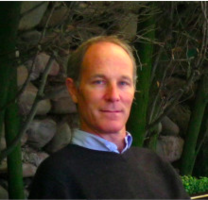David Higgins
Higgins, D.
| PersonType | Category:Translators Category:Independent Researchers |
|---|---|
| FirstName / namefirst | David |
| LastName / namelast | Higgins |
| MainNamePhon | David Higgins |
| bio | David Higgins received his doctorate from the University of Lausanne, Switzerland in 2012. He subsequently held a position as a Post-doc Research Fellow in the Department of South Asian, Tibetan and Buddhist Studies at the University of Vienna where he explored the relationship between Mahāmudrā and Madhyamaka philosophies in Bka’ brgyud scholasticism during the post-classical period (15th to 16th centuries). His research interests include Indo-Tibetan Buddhist philosophy and epistemology with a particular focus on Bka’ brgyud Mahāmudrā and Rnying ma Rdzogs chen doctrines and practices. His PhD thesis was published under the title Philosophical Foundations of Classical Rdzogs chen in Tibet: Investigating the Distinction Between Dualistic Mind (sems) and Primordial Knowing (ye shes) (Vienna, WSTB no. 78, 2013). His recent publications include Mahāmudrā and the Middle Way: Post-classical Kagyü Discourses on Mind, Emptiness and Buddha Nature (Vienna, WSTB no. 90, 2016, 2 vols.) and Buddha Nature Reconsidered: The Eighth Karma pa’s Middle Path (Vienna, WSTB, forthcoming, 2 vols.), both of which were co-authored with Martina Drazczyk. |
| phduniversity | University of Lausanne, Switzerland |
| IsInGyatsa | No |
| Other wikis |
If the page does not yet exist on the remote wiki, you can paste the tag |
Full Name
David Higgins
Affiliation
Doctoral Candidate - University of Lausanne - Switzerland
University of Victoria, Canada
Education
University of Lausanne
Other Information
David Higgins is a doctoral candidate at the University of Lausanne, Switzerland, in the Section de Langues et Civilisations Orientales and a Sessional Lecturer in Religious Studies at the University of Victoria, Canada. His current research concerns the phenomenological distinction between dualistic mind (sems) and primordial awareness (ye shes) as it has been articulated and defended in the Tibetan rNying ma tradition from the 8th to 14th centuries. His dissertation will offer a critical study of rNying ma views on mind and attempt to clarify their complex reltionship to earlier Madhyamaka, Yogācāra and Vajrayāna views.

